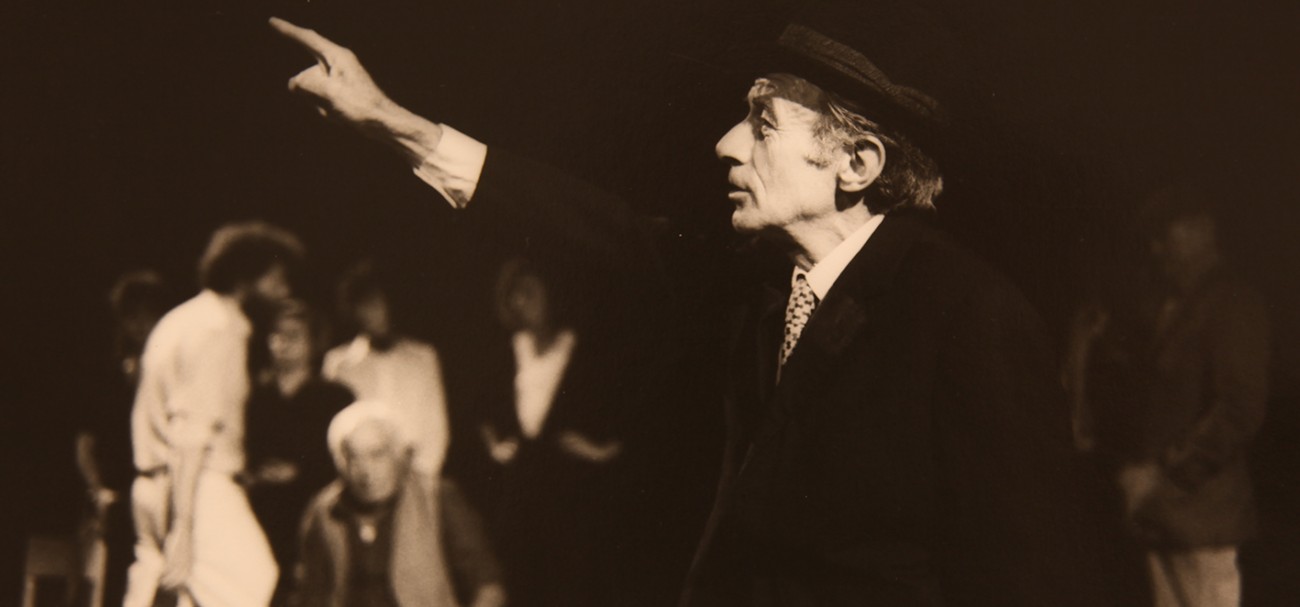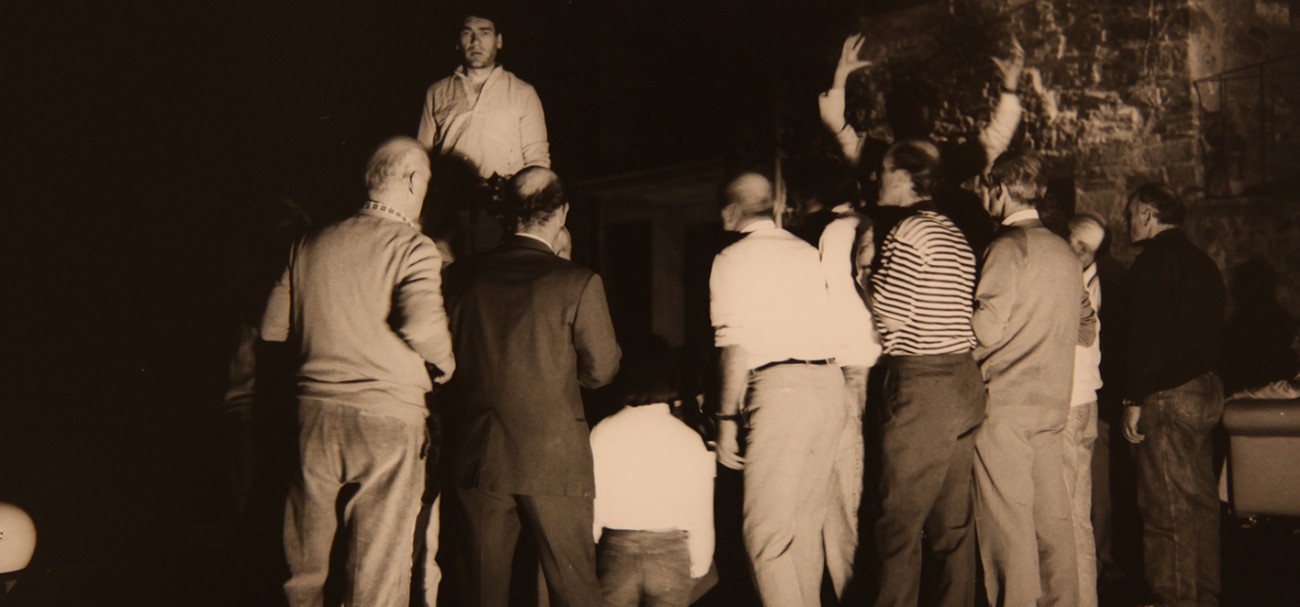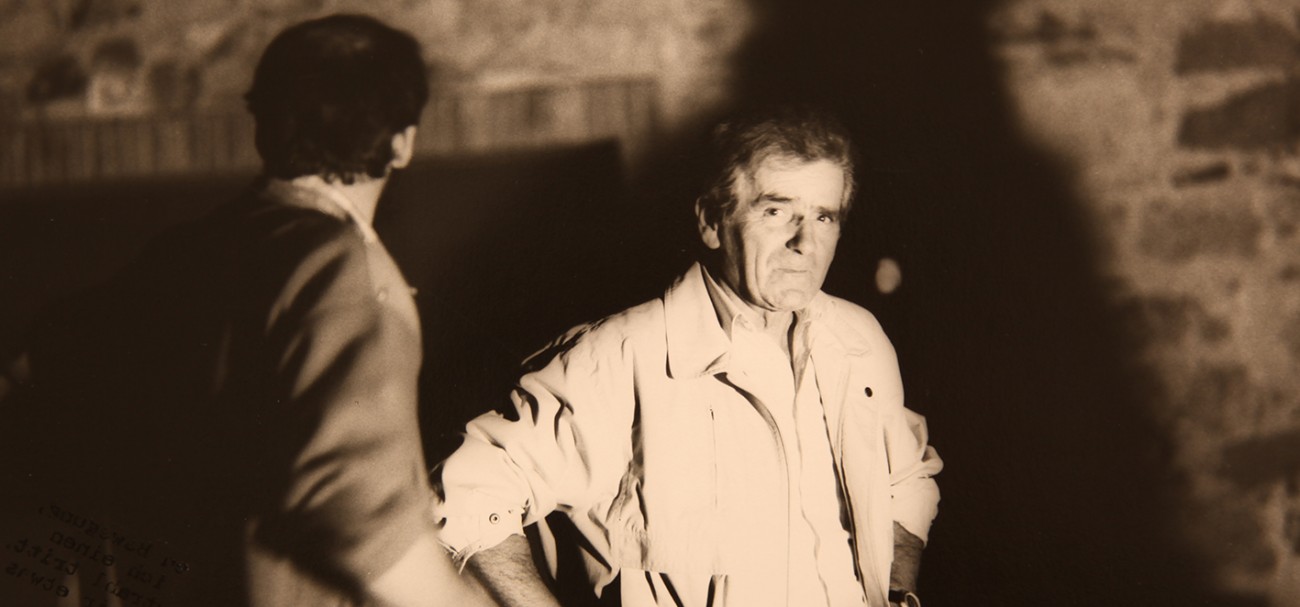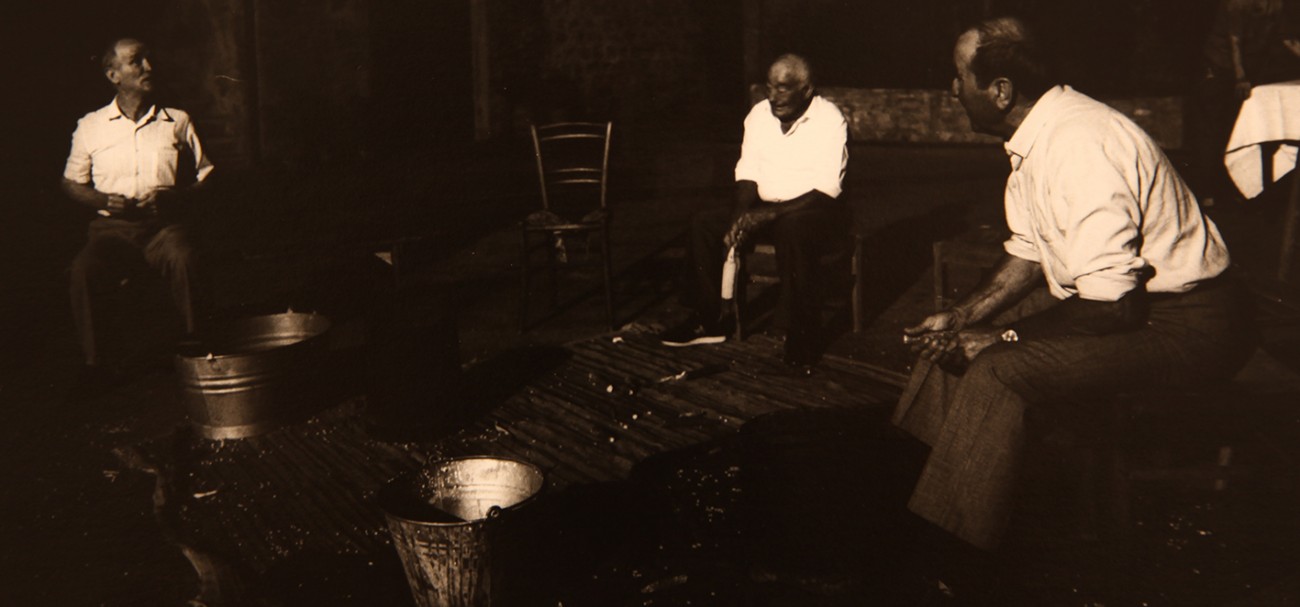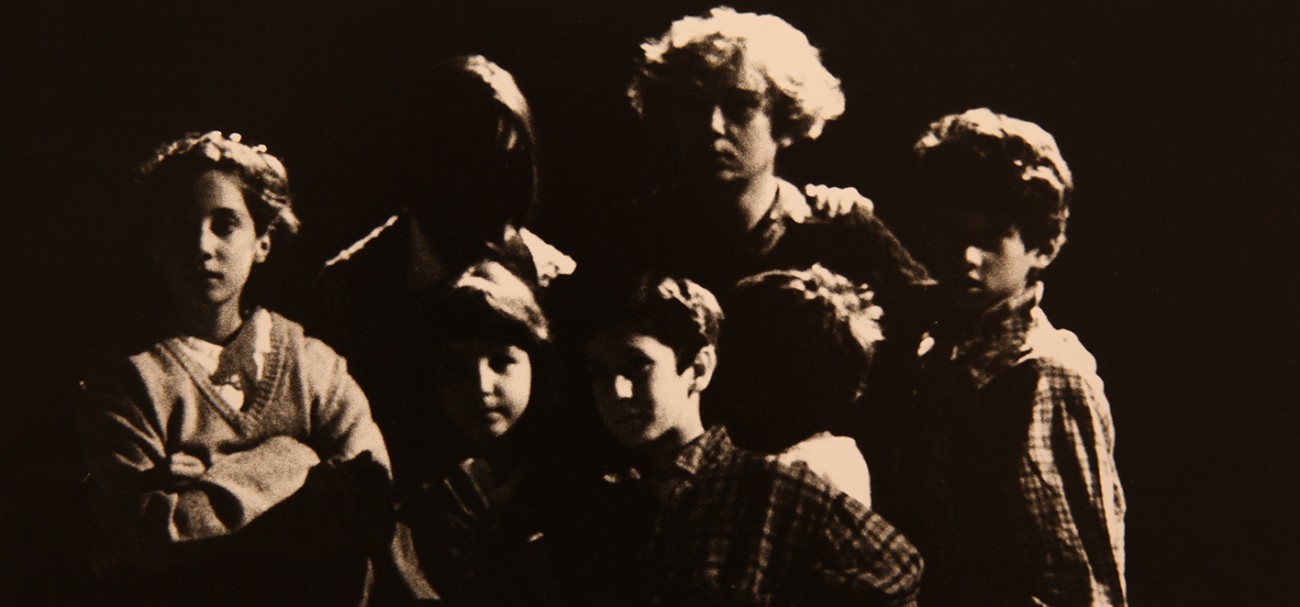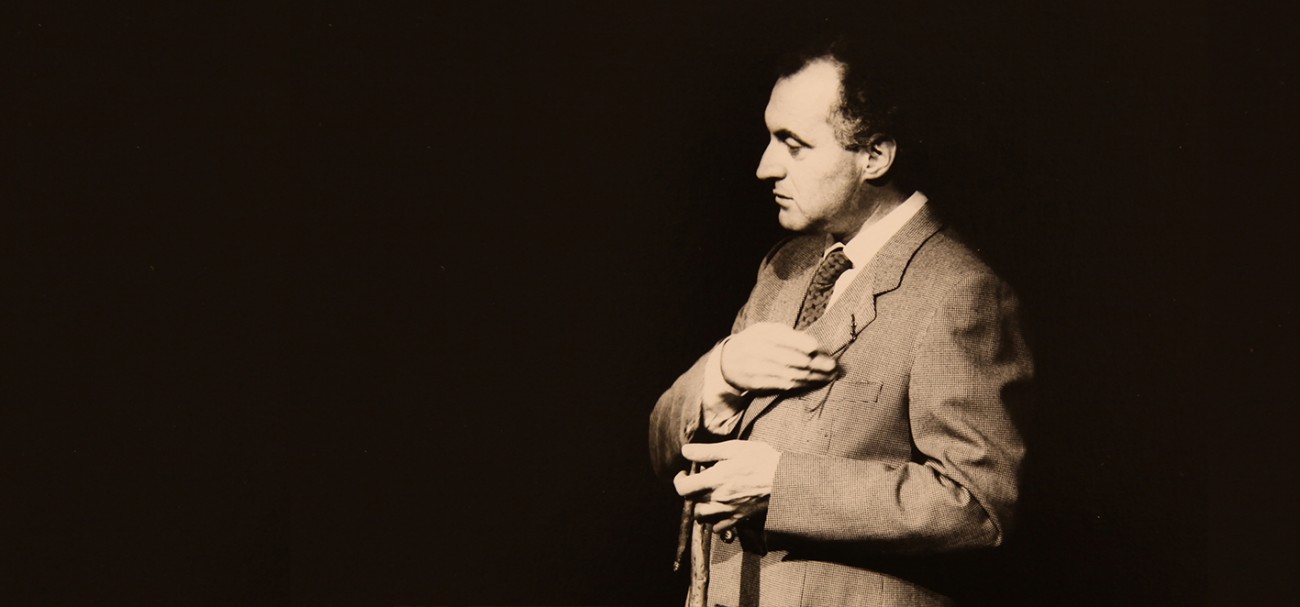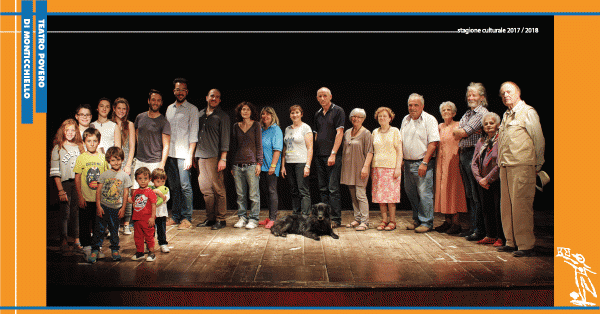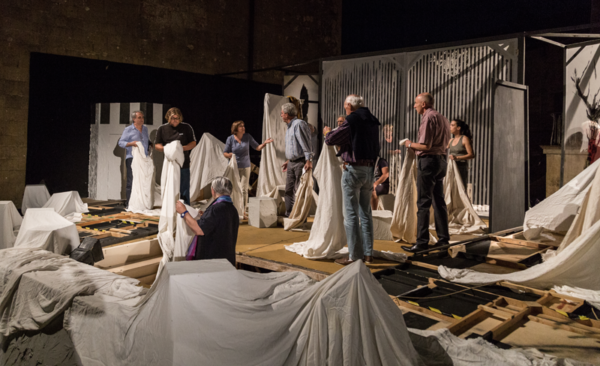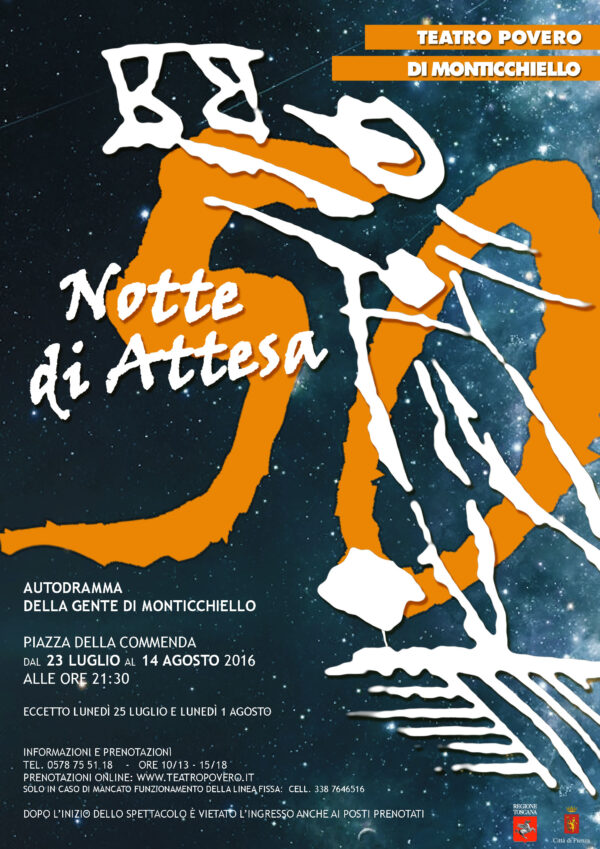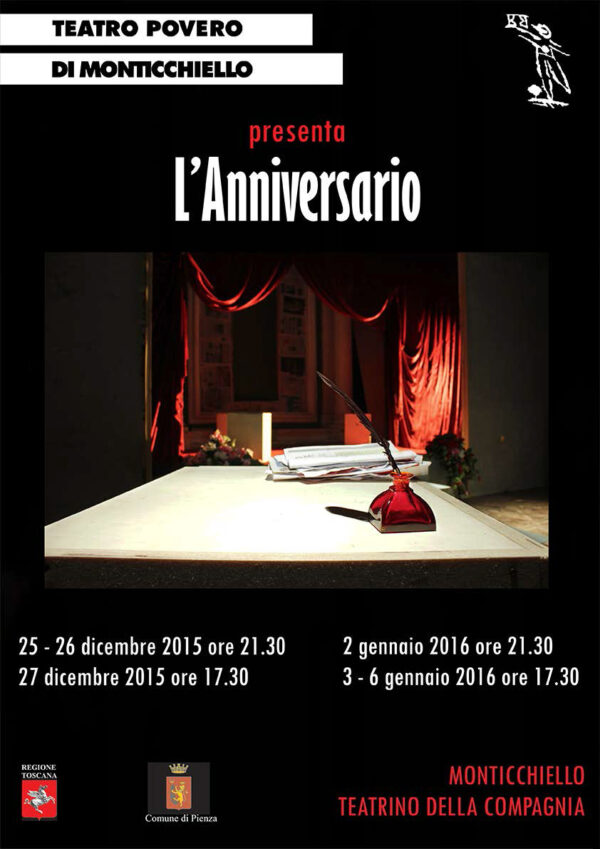‘Millanta’ rhymes with ‘millenovecento novanta’, the number (or name) of this year which began a new decade. It is also a well-known nonsense number in popular speech, denoting a quantity which is beyond calculation and which probably does not exist.
This autodramma was billed as dealing with the theme of ‘exodus’, or ‘departure’, in a context when small rural villages were still facing a drain of their population as more and more people found better work in larger centres. At the same time, though, there was a project to propose the Val d’Orcia as a rural park, perhaps with UNESCO approval. This gave rise to more complicated reflections about the status of the land in people’s minds. It also (not for the first time, nor the last) made the people of Monticchiello wonder if they were threatened with becoming a kind of museum, partly through the very fact of mounting a dramatic spectacle for the public every year.
In the first act, two sharecropping peasant families were about to join forces via a wedding. But a stupid quarrel arose about one family encroaching on the other family’s land; and the wedding was cancelled, with loud recriminations. In fact the land concerned belonged to neither family, but to their landlord: a fact which was made very clear when it seemed as if both families were going to be evicted, losing their land and their source of income in a different sort of ‘exodus’.
In the second act, reflections about Monticchiello’s identity, its relationship to the land of the Val d’Orcia, and the predicament of those who had left home, crystallized into a fantastical auction sale in which rich educated outsiders tried to buy a statue which was actually a real human Monticchiellese, frozen into immobility. The farce was ended by a bid of ‘millanta miliardi’ (‘one thrillion billion’) from a sarcastic elderly villager.

